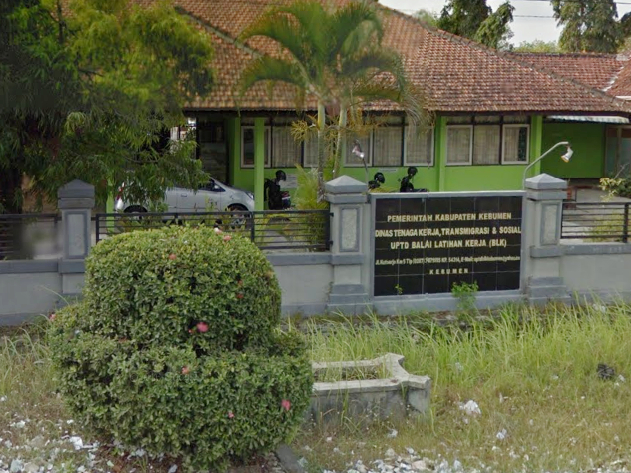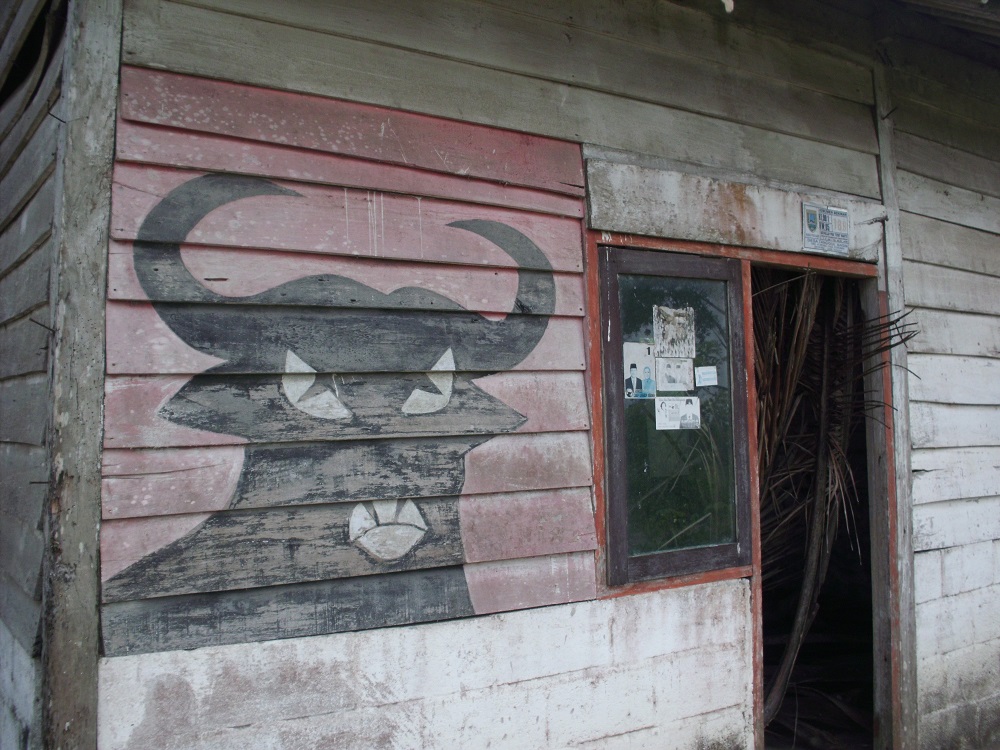Locals react coolly to ex-transmigrants who return to Java after fleeing violence elsewhere
Laila Kholid Alfirdaus
It is never easy to be labelled a ‘newcomer’. This was also true for a group of transmigrants on their return to Kebumen, in Central Java, known as ‘exodants’. In the early 2000s, violent social conflict in various provinces far from Java where they had been living, brought them back to Kebumen. They came from Kalimantan, North Sulawesi, Maluku, Papua and Aceh. In all, there were 410 families, comprising 2,140 people. The word ‘exodant’ comes from ‘exodus’ (eksodus in Indonesian), indicating they had exited en masse from the conflict areas seeking a safer place. Officials also called them ex-transmigrants. At first, they were accommodated in the town’s Office of Work Training (Balai Latihan Kerja). After a year, the Kebumen district government had provided them with semi-permanent houses built on state land next to the village of Tanggulangin, Klirong sub-district. This is located on Java’s south coast, 30–40 km south of the town, just a couple of hundred metres from the beach. Locals living in Tanggulangin village proper, less than a kilometre away, called the new settlement ‘Kampung Eksodan’.
Instead of bettering their lives, however, the return to Kebumen only brought the ex-transmigrants new difficulties. They found it hard to earn a living in Tanggulangin. Neighbours said they were ‘rude’ and ‘impolite’ because they raised their voices more than is common in Java. Others said the basic support the government gave them had made them ‘dependent’. Locals themselves live in poverty, and they thought it unfair that the government would give these people special treatment. The ex-transmigrants themselves, meanwhile, thought that the assistance they had received was far from sufficient to tide them over during the transition to settling into a new village. Although these were quite complex issues, local authorities did nothing more to help, leaving people feeling economically uncertain and unclear about what political rights they had.
How the story began
A series of violent conflicts took place in many parts of Indonesia after the New Order ended in 1998. Social scientists and policymakers paid a lot of attention to their causes and resolution. But ‘little’ things, like the problems that transmigrants might have upon returning to their regions of origin, hardly figured in their concerns. Everyone wanted to do something about the conflicts in Aceh, Kalimantan, Sulawesi, Maluku, and Papua. But nobody paid much attention to what internal displacement meant for transmigrants, who were not directly involved in the conflicts and who supposedly had a place to call home. Yet it is clear that the excesses of the conflicts have changed their lives significantly.
Kamini is a woman in her 60s. She told me she had prospered as a transmigrant in Aceh during the 1980s and 1990s. She had a few hectares of land to cultivate with her husband, and earned enough to feed her family and send the kids to school. When she first arrived, the government had given her considerable assistance. She received rice, dried fish, fertilizer, and even a bit of cash to buy side dishes. She settled in after a number of years and had looked forward to spending her old age there. Her daughter married a local Acehnese man.
Then everything changed dramatically. The Free Aceh Movement (GAM) launched an uprising that triggered a brutal government counter-insurgency operation in 1989. Javanese transmigrants like Kamini were identified as pro-Indonesia. Locals, who mostly supported GAM, thought the Javanese received privileges from the government. One day in 2002 Kamini was shocked to read an anonymous letter (surat kaleng) that had been hand-delivered to her house. It said she and her family must leave Aceh soon, or GAM would kill them. ‘My feeling said it was my son-in-law who wrote the letter,’ she told me. ‘I knew his hand-writing...’ A horrible rumour spread among her neighbours. If the Javanese families did not leave Aceh, it said, GAM would make their ‘men fertilizer for palm oil plantations’. She became nervous and began to look for a way to leave Aceh. Within a week an Indonesian soldier helped her and several other transmigrant neighbours to leave on a truck.
‘No matter what,’ she said to me, ‘I had to go home to Kebumen. It did not matter that I should only eat rice and chilli sauce (nasi sambal) in Kebumen, so long as I could save my life.’ She left all her belongings in Aceh. She first stayed at the house of a distant relative in Gombong, near the town of Kebumen. Then, in early 2002, she moved to the ex-transmigrant relocation area in Tanggulangin. Other ex-transmigrants had already been in Kampung Eksodan for a year. ‘Finally,’ she joked, ‘here is proof that I literally eat only rice and chilli sauce here.’ It is very difficult to make a living in Kebumen District. ‘But at least I am safe,’ she added.
 |
|
Ex-transmigrants were first accommodated in the local of Office of Work Training upon their return. (Google image capture) |
I heard a similar story from Sari, an elementary school teacher who transmigrated to Papua in 1985. One day in 2000, a military officer told her to leave Jayapura soon. The political situation was not safe. She and her family were then transported to Java in a military plane. Even while she was still en route to Kebumen, news came through of a clash with the Papuan Liberation Movement (Organisasi Papua Merdeka, OPM). Meanwhile, Sarikun, another transmigrant, was sent back to Kebumen after conflict exploded in Sampit, Central Kalimantan, where he had lived. He was newly married when he had transmigrated to Kalimantan in 1995. He had owned a house there and worked as a palm oil farmer, but left it all to return to Kebumen. Saino, who first transmigrated to North Sulawesi and then moved to Kalimantan, did the same. He had left his house and farming land. He told me, ‘All my belongings were left there. My only concern was for my safety. The land I cultivated had not been certified. I do not have any idea what the status of the land is now.’
Being new (old) comers
As mentioned, the Kebumen district government did actually try to help the returned transmigrants. The problem was that the long-standing Tanggulangin residents did not help them to integrate quickly. The government had not included social network strengthening as part of its relocation policy. Although things improved after about a decade, the broken relationship between the two communities has yet to be totally healed. Instead of recognising the returning transmigrants as ‘family returned home’. locals continue to identify them as newcomers. Instead of attributing the relatively aggressive behaviour of the ex-transmigrants to the impact of the social pressures they were under to make a living, locals tended to understand it as an inherent characteristic of ‘newcomers’.
Sari told me the government gave her cash to buy side dishes for about three months; some goats to start livestock production; training in how to farm in coastal land and in home industry for the women; assistance in purchasing fishing boats for those interested; and Rp.750,000 (about USD 60) in cash to use as deposit on a small trading venture. The local government in Kebumen performed very well in its assistance in solving a problem that had actually been created by the national transmigration program. Strictly speaking, managing the forced return properly should have been part of the central government’s continuing responsibility towards its transmigrants.
However, generous as it was, the Kebumen government assistance did not go far enough. Sarikun said the farming skills he had learned were useless because there was no land to cultivate. The state land they had been given was only just large enough for their houses, not for farming. Besides, farming in the coastal sand-dune landscape requires special skills – with lots of water and fertilizer – quite unlike those they had utilised in the hilly transmigration areas. The goats allocated to them could not find enough grass to eat in the dry landscape. Those with fishing boats were often too scared to use them on the heaving Indian Ocean. Their best chance lay in finding labouring work either in Tanggulangin Village or Kebumen Town. Some found work in papaya gardens, others as coconut sugar makers. Kamini said, ‘Here we are neither alive nor dead. We have not been given even a little bit of land to cultivate. Our life is difficult, even though we have many relatives.’
Relationships with neighbouring villagers remain difficult. The absence of social network strengthening in the relocation policy made it inevitable that jealousy and social stigma would arise. Locals saw the local government as spoiling the ex-transmigrants, though they were just as poor. Sometimes there was so much jealousy that it actually prevented aid from reaching the returned transmigrants. Sari said, ‘There were even going to be tractors for us, but we never received them… Some said, “I have lived here since I was small and I still have no television. Yet the eksodan, just arrived, have everything.”’ Locals had seized the little tractors, which had been given to the ex-transmigrants by the Tanggulangin village government.
But change is possible. In Tanggulangin village proper I talked with residents Ari and Basiyah. They confirmed to me what Sari had said. Ari said, ‘To my knowledge, and I can only see it from the outside, they visit the government just to take the assistance,’ and Basiyah commented, ‘The returned transmigrants have prospered from farming.’
Then I asked Ari to accompany me on my next visit to Kampung Eksodan. I invited him to be involved in the interviews. Afterwards he spoke with a different tone altogether. ‘Now that I know how hard it is, I feel sorry for them. To be an eksodan is not like how I had imagined,’ he said.
Laila Kholid Alfirdaus (alfirdaus_laila@yahoo.com) is a lecturer in the Politics and Governance Department, Faculty of Social and Political Sciences, Diponegoro University, Semarang. This is one of a pair of articles on local versus national citizen rights. The other is ‘We are natural-born children, you are adopted’ by Safrudin Amin.












